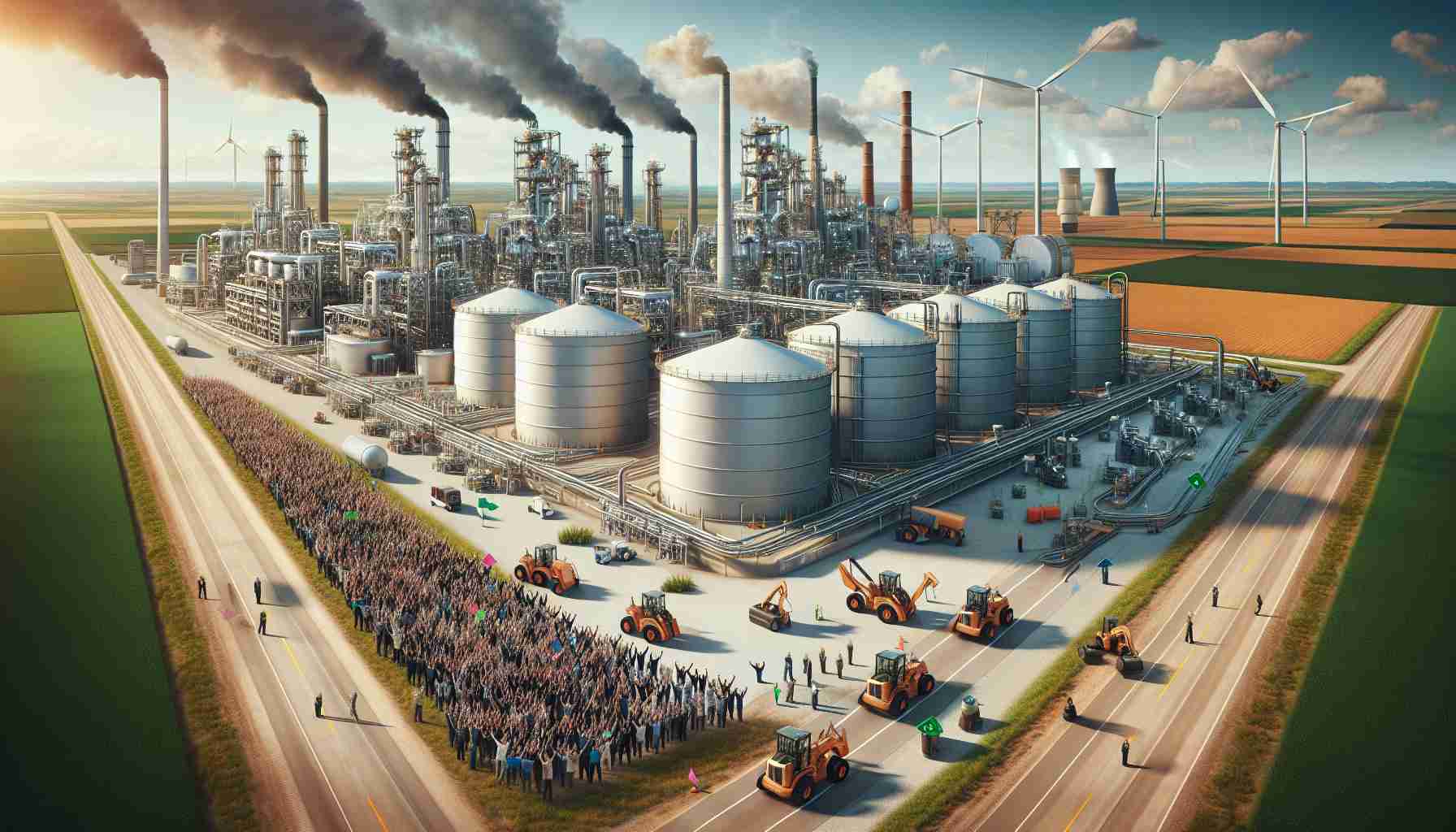The recent allocation of $22.2 million by the U.S. Department of Energy to a Midwest coalition marks a significant step towards developing hydrogen energy in the region. This financial boost is part of a larger $1 billion initiative aimed at establishing a clean hydrogen hub involving multiple projects across Illinois, Indiana, Iowa, and Michigan. Hydrogen, a versatile energy source, has been hailed for its potential to foster decarbonization, especially in heavy industries and transportation sectors that have long relied on fossil fuels.
Despite the optimism surrounding this investment, not all local stakeholders share the same enthusiasm. Just days before funding was announced, community activists took to the streets of East Chicago, voicing serious concerns about a project that would utilize hydrogen produced from natural gas, sourced from a nearby refinery. They argue that this approach undermines the project’s clean energy claims and raises safety and environmental issues, particularly for vulnerable communities with a history of pollution exposure.
The tension underscores a growing distrust between environmental justice advocates and government assertions about project safety and sustainability. Activists emphasize the need for transparency and strict regulatory frameworks to protect local communities. As discussions continue, the hope remains that the development of hydrogen infrastructure can align with community health priorities and contribute positively to the region’s environmental landscape. As the Midwest forges ahead with its hydrogen strategy, the focus on community safety will be pivotal in shaping its future.
FAQ Section
1. What is the recent financial allocation made by the U.S. Department of Energy?
The U.S. Department of Energy has allocated $22.2 million to a Midwest coalition as part of a larger initiative to develop hydrogen energy. This initiative is a part of a $1 billion effort aimed at establishing a clean hydrogen hub across Illinois, Indiana, Iowa, and Michigan.
2. What is the significance of hydrogen energy?
Hydrogen energy is considered a versatile energy source with the potential to support decarbonization efforts, particularly in heavy industries and the transportation sector, which have traditionally depended on fossil fuels.
3. Why are some local stakeholders concerned about the hydrogen project?
Local stakeholders, including community activists, have expressed concerns regarding the project’s reliance on hydrogen produced from natural gas sourced from a nearby refinery. They argue that this undermines claims of clean energy and raises safety and environmental issues for communities already dealing with pollution.
4. What do the activists advocate for regarding hydrogen energy projects?
Activists are calling for transparency and strict regulatory frameworks to ensure the safety of local communities. They emphasize the need to balance hydrogen infrastructure development with community health priorities.
5. What are the expectations for hydrogen infrastructure development in the Midwest?
As the Midwest forges ahead with its hydrogen strategy, there’s hope that the development can align with protecting community health and positively contribute to the environmental landscape of the region.
Key Terms and Definitions
– Hydrogen Energy: A clean energy source that can be utilized in various forms, primarily through fuel cells, to power vehicles and industrial processes.
– Decarbonization: The process of reducing carbon dioxide emissions produced by fossil fuel combustion, aiming for a cleaner environment.
– Environmental Justice: A movement that seeks to address the disproportionate environmental burdens faced by marginalized communities.
Suggested Related Links:
U.S. Department of Energy
Environmental Protection Agency
National Renewable Energy Laboratory
Hydrogen and Fuel Cells Program
